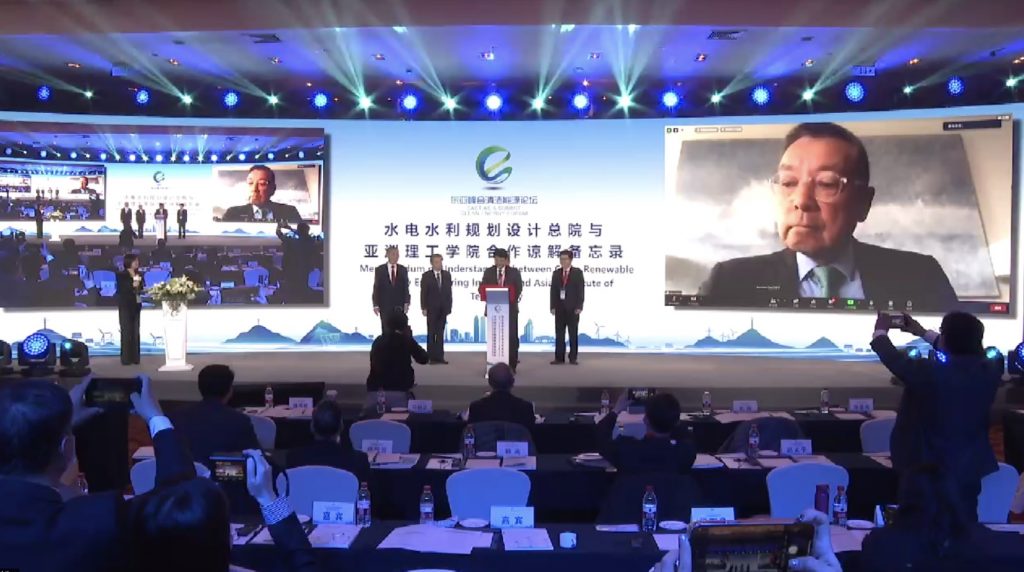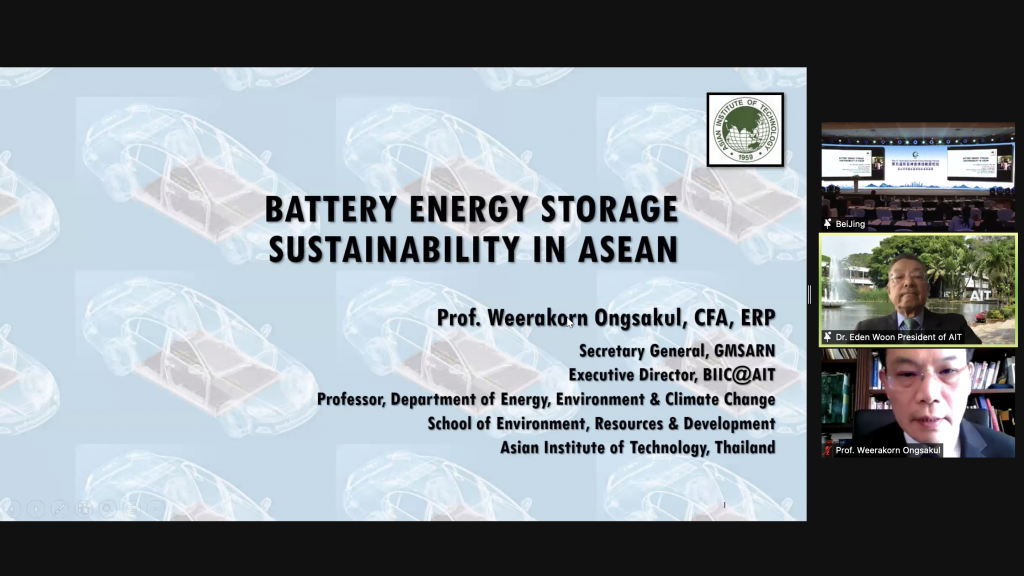By Mae Thiwari
November 25, 2021 -- The Asian Institute of Technology (AIT) took part in the 5th East Asia Summit Clean Energy Forum, together with leaders from China and ASEAN countries’ governmental, public, and private sectors. Against the backdrop of the 30th anniversary of ASEAN-China Dialogue Relations, the institute signed a Memorandum of Understanding (MOU) with China Renewable Energy Engineering Institute (CREEI) and showcased its research to promote green and sustainable energy in ASEAN.

The 5th East Asia Summit Clean Energy, held on November 25 – 26, 2021, was organized by China’s National Energy Administration, and co-organized by CREEI, ASEAN Centre for Energy (ACE) and other regional stakeholders. The two-day event is one of Asia’s leading platforms for clean energy, featuring exchanges and discussions to provide insights for energy transition policymaking and market-driven innovation.
As ‘Food-Energy-Water’ is one of AIT’s key thematic areas, the institute took part not only to exchange knowledge and expertise, but also to formalize partnership with CREEI through the signing of an MOU. Through the MOU, the two institutes will conduct exchange and research on ASEAN clean energy policy, market research and advanced technologies, with common objectives in promoting clean energy development in the ASEAN region.
“I hope that in the future we can cooperate more with China universities and institutions on energy,” said AIT President Dr. Eden Woon in regard to the signing of MOU.

In the keynote speech session, Professor Weerakorn Ongsakul, Department of Energy, Environment and Climate Change, shared with the audience his research on “Battery Energy Storage Sustainability in ASEAN”, providing an overview of the region’s development and application trends in energy storage technology. “This is just one example of how battery energy storage can be used in the utility scale,” said Prof. Ongsakul as he highlighted “Green Island Initiative” of Thailand as an example of how battery energy storage can help phase out fossil fuels used to generate electricity. It is clear from his presentation that China and ASEAN can cooperate in many ways to transition from dirty to clean energy through the development in battery energy storage.
--
China Renewable Energy Engineering Institute (CREEI) is the only institution in China that undertakes centralized management of hydropower, wind power, solar Photovoltaics (PV) power generation, and other related technologies.

